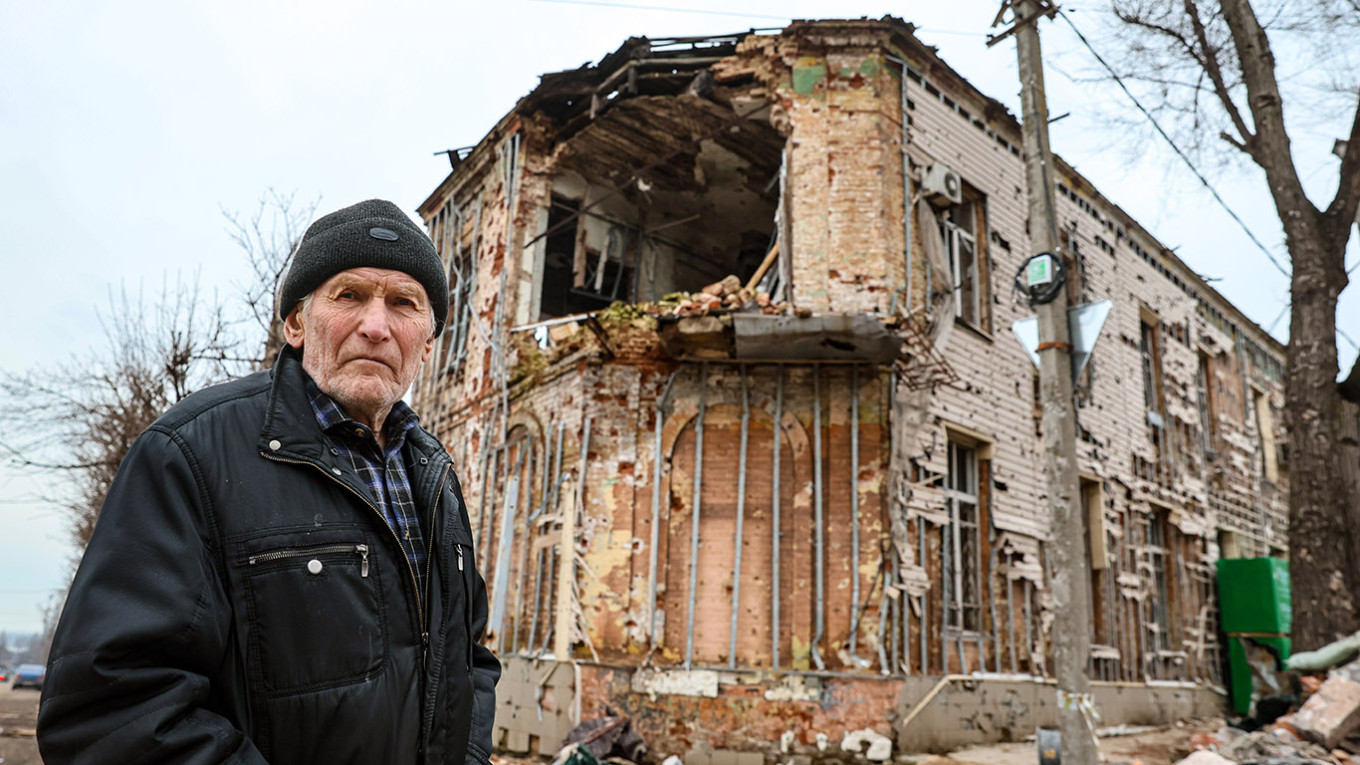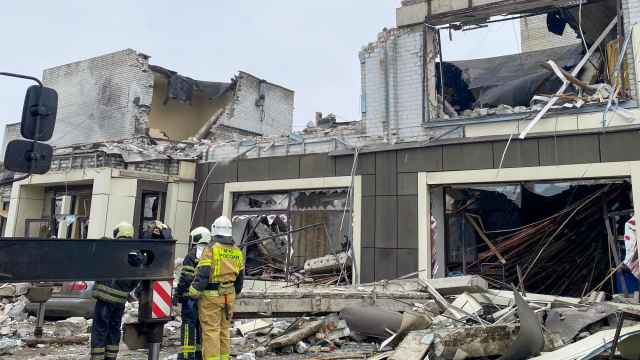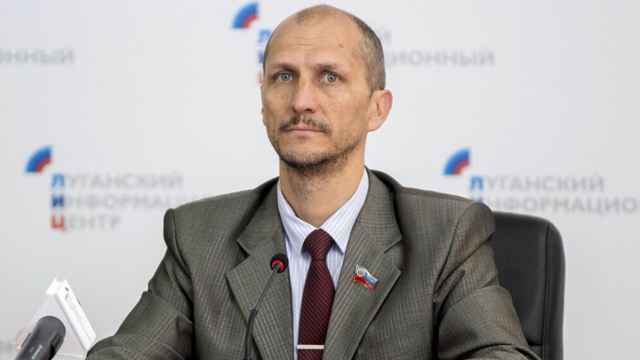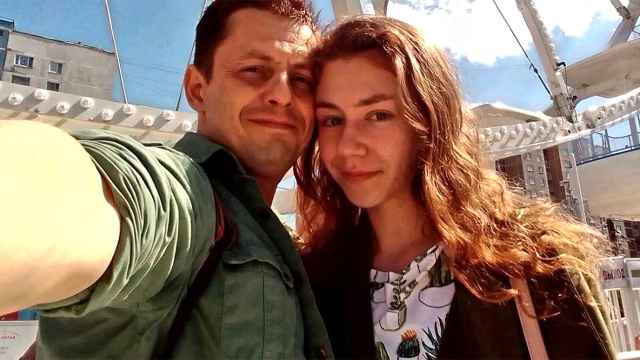“The Temporarily Occupied Territories of Ukraine” is such a dehumanizing phrase. It allows us to forget that there are people living there at all. Certainly, that makes life easier for Russians and Westerners. But ignorance of what is happening negates the possibility of any meaningful discussion on how to end the war. Omitting these regions and their communities from the conversation obscures the true nature of Russia’s actions and intentions.
To understand Russia’s ultimate goals, we must look to how it behaves when it achieves them, as in the cities of Mariupol and Melitopol, or the former cities — now ruins — of Vovchansk, Bakhmut, Avdiivka. Even a fleeting glance will reveal abundant evidence of torture, cultural destruction, brutal repression and genocide. Once your eyes adjust to the gruesome glare, Russia’s objectives come into crystal-clear view: the erasure of Ukrainian identity, the creation of buffer zones against the West, and the obliteration of any resistance to the Kremlin’s grip.
Once they have asserted control over a new territory, if there is anything or anyone left, Russian occupiers work to systematically dismantle the region’s Ukrainian identity, deforming it into an imagined regional quirk – the “Little Russian” bumpkins.
While there is plenty of physical destruction — Bakhmut and Soledar are not being rebuilt — Russia’s actions go beyond razing cities. Cultural erasure is a cornerstone of its occupation strategy. They destroy and remove Ukrainian literature from libraries and destroy and remove Holodomor memorials — a poignant symbol of Ukraine’s historical suffering. The Ukrainian language is under relentless attack. Such policies are designed not merely to suppress dissent but to erase the cultural and historical fabric of Ukraine in its own lands.
Russian occupation forces are not satisfied with destroying the Ukrainian past and present so they also seek to eradicate its future by targeting Ukrainian children. By December 2024, Ukrainian officials reported that over 19,500 children had been forcibly transferred from their homes to Russia. These children are subjected to "re-education" programs designed to strip them of their Ukrainian identity and assimilate them into Russian society. Families are torn apart, as in the case of Sashko from Mariupol, separated from his mother during the filtration process, never to see her again. Or for Yevhen, who was detained in Olenivka while his children were sent to a Moscow boarding facility. The forced adoption of deported children further compounds these violations by contravening the principles enshrined in the United Nations Convention on the Rights of the Child (CRC). According to Russian media reporting, one stolen child was adopted by a Russian soldier suspected of committing war crimes in Bucha in February-March 2022.
Those children lucky enough to remain with their parents under occupation still undergo forced indoctrination in Russian schools, where they are taught to hate Ukraine. Nor is there much else to bring joy: life under Russian control is marked by economic exploitation and severe repression. In Donetsk, children were forced to make trench candles for Russian forces over their winter holidays. Municipal workers in Zaporizhzhia have gone without salaries for over six months, while Mariupol residents are permanently denied housing to replace what they lost during the war.
Access to basic resources is weaponized: in some regions, coal for heating is withheld from those who refuse to accept Russian passports. Meanwhile, the only roads being built are to help bring troops to the frontline, turning civilian regions into military fortresses. The only real economic activity is the extraction of mineral wealth and grain to be transported onwards, away from Ukraine.
Yet, despite the immense repression, resistance in the occupied territories remains active and determined. The final week of December, for example, saw car bombings in Nova Kakhovka and Berdyansk, killing Russian Major Alexey Kornakov and Vasyl Nechet, head of the Berdyansk occupation council, respectively. The Mariupol Resistance sabotaged several vehicles belonging to Russian officers over this period, while in Melitopol, local partisans reported conducting another car bombing against occupation officials. On Dec. 30, the resistance assassinated one collaborator and seriously injured another in Oleshky, situated on the occupied left bank of the Kherson region.
These acts, carried out under the most repressive conditions imaginable — where possessing a phone with the encrypted Signal messaging app will likely lead to torture — are a testament to desperation and determination.
They also highlight the absurdity of Russian propaganda. If the occupied territories wanted to be part of Russia, why does this incredible resistance persist three years in? If Ukrainians in east Ukraine are Russians anyway: why do the occupiers need to ban Ukrainian language and culture and destroy symbols of Ukrainian identity? And, if Russia invaded to protect Russian speakers, why have they killed so many Russian speakers?
It is as if Russia is not even trying to make the propaganda convincing. But then it doesn’t really have to try: so many Western leaders are willing to bend over backward to understand Russia and its so-called security concerns. Ignoring the people being tortured and murdered in the occupied territories makes it much easier to pretend this is about NATO expansion.
Consequently, despite the scale of the atrocities, the voices of those in the occupied territories are silenced—not only by Russia but also by the West. This is because acknowledging the horrors inflicted by the Russian occupying forces undermines the argument that there is a pathway to peace with the Kremlin, exposing its proponents as, at best, misinformed and, at worst, purveyors of appeasement.
The occupied territories provide a clear view of the kind of world Russia seeks to create. They expose a regime that is not interested in peace but in domination. Russia’s genocidal actions, cultural erasure, and repression in these areas are not anomalies — they are the blueprint for its broader ambitions. Any negotiation that ignores these realities is doomed to failure, as it fundamentally misjudges the nature of the regime that Ukraine is fighting.
The horrors of the occupied territories present the West with a moral choice. They ask us not to imagine but to accept a world where Ukrainian mothers, living in Ukrainian territory, in their home city, are threatened with having their children taken away, deported to Russia and rendered untraceable unless they accept a Russian passport.
Of course, one may argue, these territories are lost anyway, these people are already terrorized, and their children have already been kidnapped — what can we do about it? The answer is at the very least to acknowledge their suffering and incorporate it into our analysis of Russia’s war. For the more ambitious, one might suggest preventing Russia’s occupation from advancing further. Russia’s consistent negotiation stance — that it has full control of the four territories it claims as its own — would see currently millions of Ukrainians handed over to this abject moral universe.
Despite the insistent tea-leaf reading of many Western commentators, there is little evidence to support the notion that the Kremlin is interested in any lasting peace. Of course, even if it were, that would provide very little comfort to Ukrainians, often metonymized as territories, doomed to live with this so-called peace of occupation. If you want a picture of that peace, imagine a boot stamping on a human face — forever.
A Message from The Moscow Times:
Dear readers,
We are facing unprecedented challenges. Russia's Prosecutor General's Office has designated The Moscow Times as an "undesirable" organization, criminalizing our work and putting our staff at risk of prosecution. This follows our earlier unjust labeling as a "foreign agent."
These actions are direct attempts to silence independent journalism in Russia. The authorities claim our work "discredits the decisions of the Russian leadership." We see things differently: we strive to provide accurate, unbiased reporting on Russia.
We, the journalists of The Moscow Times, refuse to be silenced. But to continue our work, we need your help.
Your support, no matter how small, makes a world of difference. If you can, please support us monthly starting from just $2. It's quick to set up, and every contribution makes a significant impact.
By supporting The Moscow Times, you're defending open, independent journalism in the face of repression. Thank you for standing with us.
Remind me later.








